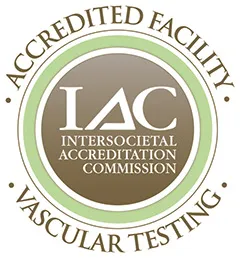unwanted hair
Aesthetic Conditions
Understanding Hirsutism: Excessive Hair Growth
Condition
Unwanted hair, a common concern among adults of all genders, can often become a source of discomfort and self-consciousness.
This excess hair can manifest itself in various body areas, including the back, legs, face, underarms, bikini region, or other body parts, and it can significantly impact an individual’s self-esteem and overall well-being.
If you or a loved one live with excessive body or unwanted facial hair, we are here to help.
Here, we explore hirsutism in more detail, covering the causes, symptoms, and treatment options for unwanted hair to shed light on this prevalent issue that affects people from diverse backgrounds.
Continue reading to learn more.
What is Hirsutism?
Hirsutism is a medical condition characterized by excessive and unwanted hair growth in areas of the body where hair typically doesn’t grow or is minimal in individuals of the same sex and age.
This condition primarily affects women but can also occur in men to a lesser extent.
Hirsutism in Women vs. Hirsutism in Men
Hirsutism affects both women and men but manifests differently in each gender.
In women, hirsutism is more prevalent and typically becomes a cosmetic concern, mainly in those of reproductive age. Excessive hair growth in women often occurs on the face, particularly the upper lip, chin, and cheeks, as well as on the chest, back, and abdomen.
For women, this condition is frequently linked to hormonal imbalances, primarily an excess of male hormones like androgens, with conditions such as polycystic ovary syndrome (PCOS) being a common culprit. The emotional impact of hirsutism can be significant for women, causing self-consciousness and reduced self-esteem.
On the other hand, hirsutism in men is less common and presents differently.
Men naturally have more body hair than women, particularly in areas like the face (beard), chest, back, and abdomen. Therefore, excessive body hair in men is generally considered a part of normal male pattern hair growth and is not commonly associated with hormonal imbalances. Instead, excessive hair growth in men is often related to genetic factors, family history, or ethnic background. Unlike women, hirsutism in men is usually not a source of significant psychological distress, and many men manage it through routine grooming practices.
Hirsutism Symptoms
The symptoms of hirsutism are primarily related to the visible signs of abnormal hair growth.
Common signs and symptoms of hirsutism include:
- Coarse and dark hair
- Facial hair, particularly on the upper lip, chin, cheeks, and neck.
- Chest and abdominal hair
- Excessive hair on the back
- Unwanted hair growth on the upper arms and thighs
- Hair growth on the buttocks
- Emotional and psychological distress may manifest as self-consciousness, anxiety, depression, and decreased self-esteem and overall quality of life.
It’s important to note that the severity and distribution of hirsutism can vary from person to person. In some cases, it may be limited to one or a few specific areas, while in others, it may be more widespread.
Causes of Hirsutism
Hirsutism can have various underlying causes, with hormonal imbalances being the most common factor.
Some of the primary causes of hirsutism include:
- Polycystic Ovary Syndrome (PCOS)– a hormonal disorder that results in the overproduction of androgens (male hormones), leading to symptoms like irregular periods, ovarian cysts, and excess hair growth.
- Cushing’s Syndrome is a rare condition resulting from an excess cortisol hormone, often due to an adrenal or pituitary tumor.
- Congenital Adrenal Hyperplasia (CAH)– a genetic disorder that affects the adrenal glands’ ability to produce hormones, leading to an imbalance of androgens and other hormones.
- Some medications, such as anabolic steroids, certain corticosteroids, and some anticonvulsants.
- Ovarian or adrenal tumors
- Hormonal fluctuations during puberty, pregnancy, and menopause
- Insulin resistance, often associated with conditions like obesity and type 2 diabetes, can contribute to hirsutism, especially in women with PCOS.
- Hyperprolactinemia– Elevated levels of the hormone prolactin can lead to
- Genetics and family history
To determine the cause and develop an appropriate treatment plan, individuals with hirsutism should seek medical evaluation by a healthcare professional, typically an endocrinologist or a dermatologist.
A diagnosis typically involves a physical examination, medical history, blood tests to measure hormone levels, and imaging studies (e.g., ultrasound) to assess the ovaries and adrenal glands. Once the underlying cause is identified, treatment options, including aesthetic treatments, can be tailored to address the specific condition and its associated symptoms.
Effective Hirsutism Treatments
Hirsutism can be effectively managed through a range of treatment options.
At Tennessee Vein Center, we offer the following treatment options for excessive hair growth
Dermaplaning is a non-invasive cosmetic procedure that can effectively affect hirsutism management.
During dermaplaning, a sterile surgical blade gently scrapes the skin’s surface, removing the fine vellus hair (commonly known as “peach fuzz”) and the top layer of dead skin cells.
While not a permanent solution, dermaplaning immediately improves the texture and appearance of the skin by promoting a smoother, brighter complexion.
Additionally, it can enhance the effectiveness of other topical treatments and cosmetics used in hirsutism management.
Diolaze™ is an advanced laser hair removal system that offers a practical, long-lasting solution for hirsutism.
This treatment uses diode laser technology to target hair follicles in the affected area. The laser emits controlled pulses of energy absorbed by the hair follicles, effectively damaging them and inhibiting future hair growth.
Diolaze™ is known for its precision and ability to safely target a wide range of hair types and skin tones. It provides a more permanent reduction in hair growth compared to many other treatments.
Targeted Unwanted Hair Removal Near Knoxville, TN
You shouldn’t neglect unwanted hair.
Effective treatment allows you to manage and reduce excessive hair growth without extensive procedures or downtime.
Tennessee Vein Center is home to experienced specialists in hirsutism management.
Led by Dr. Keith Campbell, you can trust us to address your hirsutism concerns effectively, alongside other Aesthetic Vein Conditions we treat.
If you are dealing with hirsutism or have questions about your unwanted hair growth, please get in touch with us at (865) 233-5858 or schedule a consultation today.

